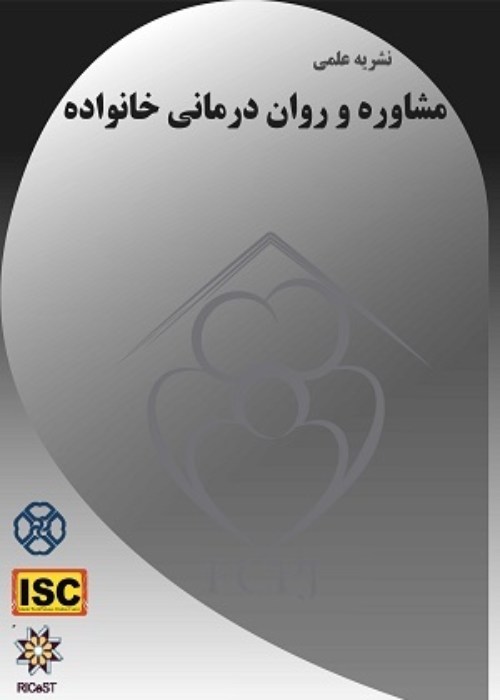Comparison of the effectiveness of existential, cognitive-existential and humanistic-existential group psychotherapy on behavioral self-regulation for effective relationships in women
Author(s):
Article Type:
Research/Original Article (دارای رتبه معتبر)
Abstract:
In most of the existential philosophy texts, the interpersonal and close relationships have been studied. Therefore, to the enhancement, interpersonal relationships testing psychotherapies elicited from such a philosophy is quite significant. However, which method is the most effective on this ground? The purpose of this research is to study the comparison of the effectiveness of existential, cognitive-existential and humanistic-existential group psychotherapy on behavioral self-regulation for effective relationships among type II diabetes and obesity in women. The method of the research was experimental and its experimental design includes the pretest, post-test and two-month follow-up test with experimental and control parallel groups. Cases of this study included women with co-morbidity type II diabetes and obesity referring to the Specialist Diabetes Clinic of Tohid Hospital in Sanandaj in the first three months of 2019. After screening the level of behavioral self-regulation for effective relationships, 32 subjects were selected by simple random sampling method from this society and were assigned to three experimental and one control group by substitutive random method. The data were collected based on the scale of behavioral self-regulation for effective relationships Wilson, Charker, Lizzio, Halford & Kimlin (2005). After the pre-test, the experimental groups participated in 120-minute sessions for 9 weeks. Data were analyzed by the statistical test of repeated measures of the General Linear Model and the SPSS software. The results of repeated measures analysis showed that the effect of the cognitive-existential intervention on relationship self-change behaviors was significant and stable compared to the control group (P-value = 0.001). Cognitive-existential intervention can significantly and consistently effect on relationship self-change behaviors in women with co-morbidity type II diabetes and obesity. The findings indicate the benefit of applying a cognitive-existential method to counseling and psychotherapy, but there are some ambiguities to be addressed in this article.
Keywords:
Language:
Persian
Published:
Journal of Family Counseling & Psychotherapy, Volume:9 Issue: 2, 2020
Pages:
145 to 172
magiran.com/p2107989
دانلود و مطالعه متن این مقاله با یکی از روشهای زیر امکان پذیر است:
اشتراک شخصی
با عضویت و پرداخت آنلاین حق اشتراک یکساله به مبلغ 1,390,000ريال میتوانید 70 عنوان مطلب دانلود کنید!
اشتراک سازمانی
به کتابخانه دانشگاه یا محل کار خود پیشنهاد کنید تا اشتراک سازمانی این پایگاه را برای دسترسی نامحدود همه کاربران به متن مطالب تهیه نمایند!
توجه!
- حق عضویت دریافتی صرف حمایت از نشریات عضو و نگهداری، تکمیل و توسعه مگیران میشود.
- پرداخت حق اشتراک و دانلود مقالات اجازه بازنشر آن در سایر رسانههای چاپی و دیجیتال را به کاربر نمیدهد.
دسترسی سراسری کاربران دانشگاه پیام نور!
اعضای هیئت علمی و دانشجویان دانشگاه پیام نور در سراسر کشور، در صورت ثبت نام با ایمیل دانشگاهی، تا پایان فروردین ماه 1403 به مقالات سایت دسترسی خواهند داشت!
In order to view content subscription is required
Personal subscription
Subscribe magiran.com for 70 € euros via PayPal and download 70 articles during a year.
Organization subscription
Please contact us to subscribe your university or library for unlimited access!



